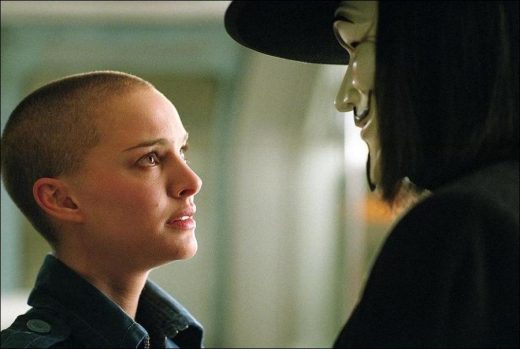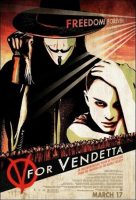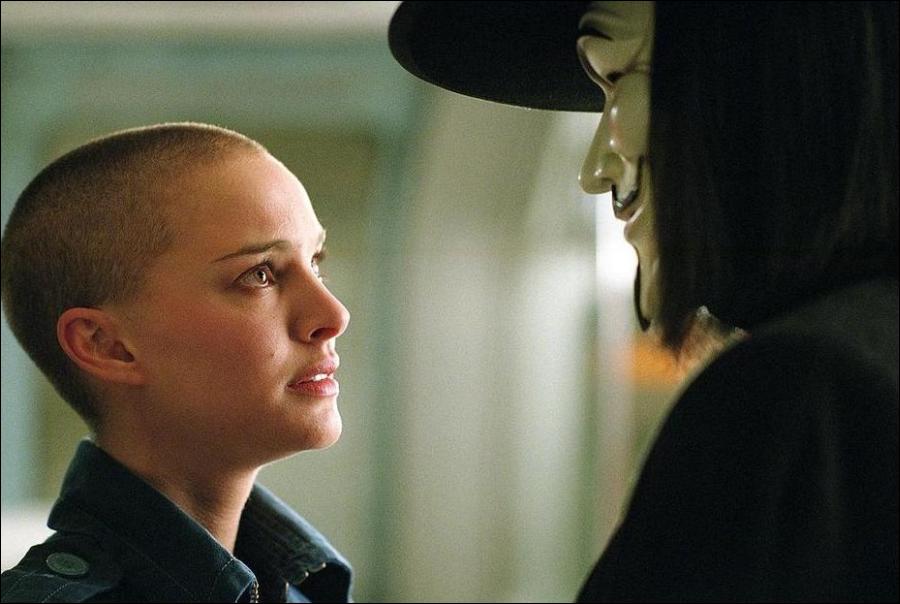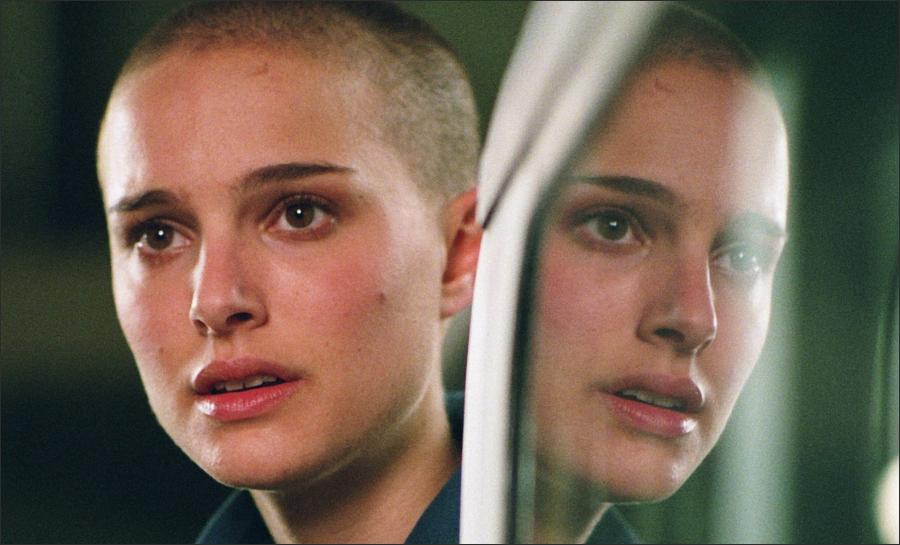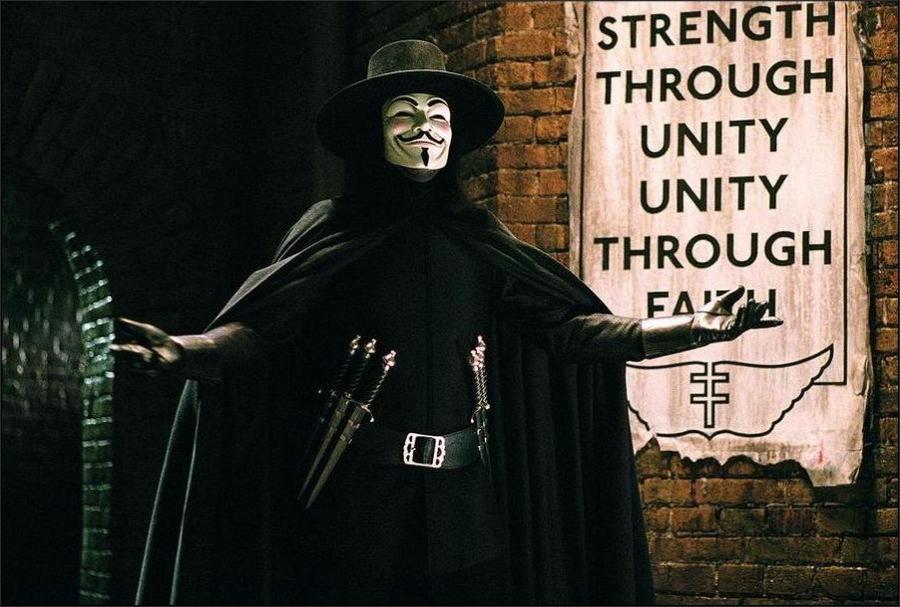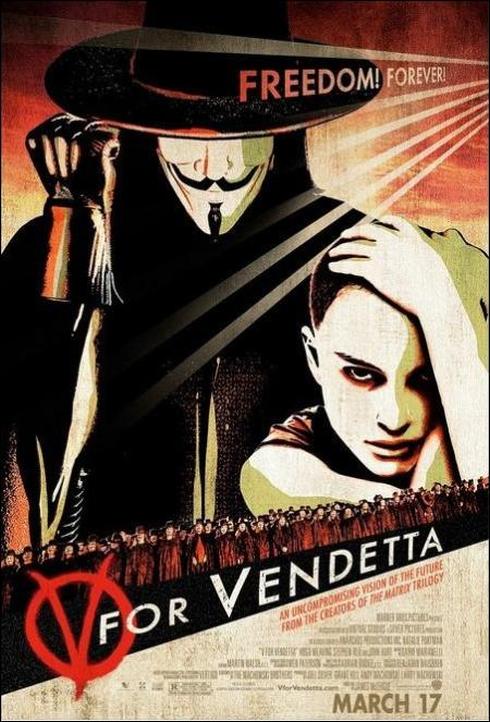V for Vendetta movie review. It is a fact that Wachowski Brothers brought beauty to action cinema. Not because of the scenes where we can see fighters hanging in the air or bullets. From the philosophical phrases of the fighting people, to the fact that they can quote almost every line in the human memory from the Old Testament to William Blake. Sometimes they don’t make them think they missed the end of the rope. But in some determinations it is clear that they are consistent; Like, “Nothing is a coincidence”. During the Matrix trilogy fatalist Morpheus was saying this, now V for Vendetta.
“V for Vendetta” is one of the darkest works of British writer Alan Moore. It is a work that stands firm and burns everything if it questions how legitimate individual violence against a totalitarian regime will be, saying “how can you be renewed without turning into a complete ash”. Moore created this story in 1982, inspired by Britain under Thatcher. The fact that the original story was embellished with flavorful philosophical dialogues as much as stylized violence must have watered the Wachowski’s mouths. If we recall Constantine with the Magnificent Heroes previously adapted from Moore’s works and Partially From Hell, let’s say in advance that we are facing a much more successful adaptation this time.

When the view proposed by the film looks at the world we are in, it is not an exaggeration. The Nazi-like government, led by a leader named Sutler in England, which is the number one ally of the bully US, is taking root in society. Just like the name and the image, Sutler looks like Hitler, and his right-hand man is Creedy de Gestapo.
It is also beneficial to keep these similarities excessive enough to leave no room for imagination. This preference is important in terms of seeing how the discourse of a totalitarian regime is similar to the discourses of some of today’s administrations who claim that they are not so and teach everyone a lesson in democracy. Sutler, as he did in Half Life, shouts the guys across the giant screen, “I want everyone to remember why they need us.” It is a very striking way of revealing that violence and terrorism can be a toy of power.
V is not an easy movie. The fact that violence appears to impose the legitimacy while recalling some very simple principles may cause distress. What’s more, the fact that the number one assistant director of the Matrix series is behind the camera, but has surprisingly few action and explosion scenes. It is also difficult to say that James McTeigue manages these action scenes well. But V is a film that stands firm with its philosophical depth, its strength, its simplicity, which refuses to be an action movie.
Once it reveals a very important dilemma: “People should not be afraid of government, governments should be afraid of people”. This reminds one of the most important definitions of democracy, the almost forgotten principle of “self-governing people.”
When the people say “manage us” to what they vote, they “manage” too. While they are going to rule the system called state, they think they are managing the people.
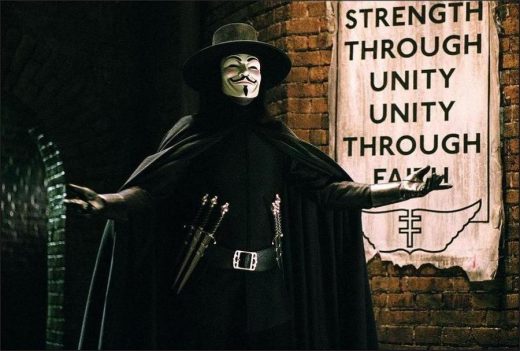
V says something very simple: “There are no rulers and governments. The people are self-governing and entrust them to the people they choose. They pay their money with taxes.” But Moore’s V goes a step further and says: “If power is corrupt and there is no court left to judge it, violence is legitimate. If necessary, I’ll blow up the parliament!”
Cloned as Agent Smith in Matrix, Hugo Weaving is now cloned as V. But instead of tens of thousands of V (can be thought we (us) with English reading) masked people overthrow parliament, they insist that the building be blown up as a tribute to individual violence. The civil coup is shaking hands with terrorism. This is frankly disgusting. When he sees what happened to some of the people with whom V distributes a mask, the human stops for a moment and asks him; “Why do I want V to be successful?”. Perhaps V is the answer to this question again, “If violence is for good, it will bring justice”. Could it be because even a little girl sees him as a savior, not a terrorist, despite the fact that interlink (!), TV and print media have directed so much?
Hugo Weaving did the hardest job for an actor. He was deprived of all the facial expressions he could use except his voice and body language (as if Tobey Maguire). This situation, which is strange in the first scenes, seems to be easily overcome by the imagination in the audience’s brain. It is also interesting that he filled his charisma, created with an impressive tone, with question marks by playing Anthony and The Johnsons’ Bird Gerhl in the jukebox. Seeing Natalie Portman curling her British accent pretty well and seeing Winston Smith, John Hurt, the head of the dictatorial regime this time, are other pleasures of the film.
V is a cathartic story that determines the situation rather than giving a message, transforming a dystopia into hope. A fantasy. While doing this, it is also a fantasy that should be experienced more than once, asking the audience very hard questions about how violence is used.
V for Vendetta (2006)
Directed by: James McTeigue
Starring: Natalie Portman, Hugo Weaving, Stephen Fry, Rupert Graves, Stephen Rea, Tim Pigott-Smith, Roger Allam, Natasha Wightman, John Standing, Emma Field-Rayner
Screenplay by: Andy Wachowski, Larry Wachowski, Alan Moore
Production Design by: Owen Paterson
Cinematography by: Adrian Biddle
Film Editing by: Martin Walsh
Costume Design by: Sammy Sheldon
Set Decoration by: Peter Walpole
Art Direction by: Marco Bittner Rosser, Stephen Bream, Stephan O. Gessler, Sarah Horton, Sebastian T. Krawinkel, Kevin Phipps
Music by: Dario Marianelli
MPAA Rating: R for strong violence and some language.
Distributed by: Warner Bros. Pictures
Release Date: March 17, 2006
Views: 235
